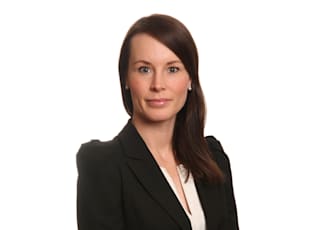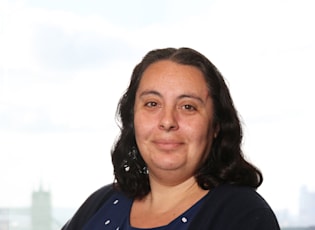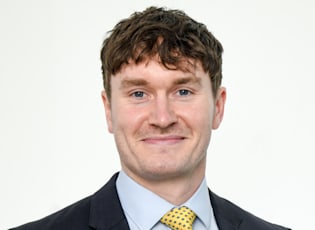- Medical Negligence Claims
- Hip Dysplasia Claims
Hip Dysplasia (DDH) Claims
If your baby is born with Developmental Hip Dysplasia (DDH) and there is negligent failure to diagnose the condition by medical staff, you may be able to claim compensation for care and treatment and for potential physical problems in later life. To speak with one of our hip dysplasia experts call 0800 358 3848 or complete our online enquiry form.

DDH is a condition where a baby's ball and socket hip joint does not fit together as it should. There may be a complete dislocation of the femoral head and the acetabulum (socket of the hip bone) or there may be a partial dislocation, also known as a 'subluxation'. A failure to diagnose DDH during early childhood can result in disabilities in later life.
All new-born babies should undergo a comprehensive new-born physical examination within their first 72 hours of life. Part of this is to check the baby's hips for DDH, normally done by laying the baby on their back and gently moving the legs apart. If there is a 'clunk', it may indicate that the femoral head and acetabulum are detached.
A six to eight-week GP examination (also known as the Child Health Surveillance) should also include a check of the baby's hips.
Common signs of DDH include:
- inability to sit independently
- 'dragging' one leg when crawling (commando crawling)
- walking late and/or walking with a pronounced limp
- appearing excessively unstable when walking and difficulty with ascending and descending stairs
- stiff hip or hips – i.e. a restriction of movement in both hips or in one hip compared to the other
- leg length discrepancy
- abnormal gait
- asymmetrical thigh creases
Late diagnosis of hip dysplasia can lead to various problems in later life, including increased pain and surgery during childhood (usually an osteotomy) and subsequent surgery to remove the plates and screws. As the child gets older they may suffer from premature arthritis and require hip replacement surgery. There will likely be a decrease in tolerance for exercise. There may be a requirement for care and assistance with daily tasks as the child becomes an adult.
As a general rule of thumb, if a child is diagnosed before the age of two, effective treatment should allow normal development of the hips.
Our medical negligence lawyers are expert in pursuing hip dysplasia claims to access funding for specialist care and treatment and to prepare for potential physical difficulties in late life.
Recent cases
Browse our recent hip dysplasia cases.
Our hip dysplasia claims experts
Our award-winning medical negligence team believes in putting clients first. We are dedicated to achieving the best results possible and pride ourselves on our sensitive approach. Any of the team below will be pleased to discuss your case and offer free advice over the phone.
-
Head of Personal Injury and Medical Negligence
Iona Meeres-Young
-
London, England
- 0330 460 6769
- Email Iona
-
-
Director
Will Jones
-
London, England
- 0330 460 6822
- Email Will
-
-
Partner
Paul McNeil
-
Partner
Samantha Critchley
-
London, England
- 0330 460 6812
- Email Samantha
-
-
Partner
Mark Bowman
-
Partner
Ian Christian
-
London, England
- 0330 460 6514
- Email Ian
-
-
Partner
Julia Hamilton
-
Manchester, England
- 0330 460 6780
- Email Julia
-
-
Partner
Lindsay Holt
-
Manchester, England
- 0330 460 6789
- Email Lindsay
-
-
Partner
Claire Horton
-
Manchester, England
- 0330 460 6748
- Email Claire
-
-
Partner
Shivi Nathan
-
London, England
- 0330 460 7160
- Email Shivi
-
-
Partner
Kate Rohde
-
London, England
- 0330 460 6781
- Email Kate
-
-
Partner
Arti Shah
-
London, England
- 0330 460 6739
- Email Arti
-
-
Partner
Helen Thompson
-
London, England
- 0330 460 6765
- Email Helen
-
-
Partner
Jenny Urwin
-
Manchester, England
- 0330 460 6776
- Email Jenny
-
-
Partner
Jane Weakley
-
London, England
- 0330 460 6773
- Email Jane
-
-
Partner
Jonathan Zimmern
-
London, England
- 0330 460 6779
- Email Jonathan
-
-
Director
Marcos Eleftheriou
-
London, England
- 0330 460 6352
- Email Marcos
-
-
Director
Caron Heyes
-
London, England
- 0330 460 6743
- Email Caron
-
-
Director
Deborah Nadel
-
London, England
- 0330 460 6750
- Email Deborah
-
-
Director
Punam Sood
-
London, England
- 0330 460 5952
- Email Punam
-
-
Senior Associate
Sevim Ahmet
-
Senior Associate
Suzanne Farg
-
London, England
- 0330 460 6819
- Email Suzanne
-
-
Senior Associate
Christina Gardiner
-
London, England
- 0330 460 6746
- Email Christina
-
-
Senior Associate
Emma Kendall
-
London, England
- 0330 460 6755
- Email Emma
-
-
Senior Associate
Rachel Morgan
-
London, England
- 0330 460 6608
- Email Rachel
-
-
Senior Associate
Nilam Patel
-
London, England
- 0330 460 6801
- Email Nilam
-
-
Associate
Rebecca Drew
-
Associate
Libby Ferrier
-
London, England
- 0330 460 7178
- Email Libby
-
-
Associate
Gabriella Gooday
-
London, England
- 0330 460 6758
- Email Gabriella
-
-
Associate
Jamie Green
-
London, England
- 0330 460 6771
- Email Jamie
-
-
Associate
Sarah Kingsley Fried
-
London, England
- 0330 460 6815
- Email Sarah
-
-
Associate
Carley Ross
-
London, England
- 0330 460 6838
- Email Carley
-
-
Associate
Gemma Wells
-
London, England
- 0330 460 6549
- Email Gemma
-
-
Solicitor
Louise Astill
-
London, England
- 0330 460 6147
- Email Louise
-
-
Solicitor
Heidi Brotherton
-
Manchester, England
- 0330 460 6763
- Email Heidi
-
-
Solicitor
Mikhail Popov
-
London, England
- 0330 460 7236
- Email Mikhail
-
-
Solicitor
Satvir Sokhi
-
London, England
- 0330 460 7393
- Email Satvir
-
-
Solicitor
Ella Thornton
-
Manchester, England
- 0330 460 7214
- Email Ella
-
-
Legal Executive
Henry Kirwan
-
London, England
- 0330 460 6766
- Email Henry
-
-
Chartered Legal Executive
Marlena Mistak
-
London, England
- 0330 460 6795
- Email Marlena
-
-
Solicitor Apprentice
Jess Gurzynski
-
London, England
- 0330 460 6777
- Email Jess
-
-
Solicitor Apprentice
Amba Minhas
-
London, England
- 0330 460 7124
- Email Amba
-
Why choose Fieldfisher's medical negligence team?
Settlements
We achieve record damages for people suffering serious injury following medical negligence. Last year, we recovered more than £200m in compensation claims.
Experience
We have more than 30 years' experience pursuing claims for people injured by medical negligence, clinical negligence, medical accidents and medical mistakes.
Recognised
We are ranked top tier in leading legal directories and regularly recognised in industry awards. We are accredited by APIL, panel members of AvMA and members of the Law Society’s Clinical Negligence Panel.
Latest news and insights
Read the latest news and insights from our medical negligence team.

Awards and recognition
We are recognised in all the leading legal directories and regularly win industry awards for our work with clients.
Contact us
For a free, no obligation call with one of our medical negligence experts, please dial 0800 358 3848 or complete our online enquiry form.


































































